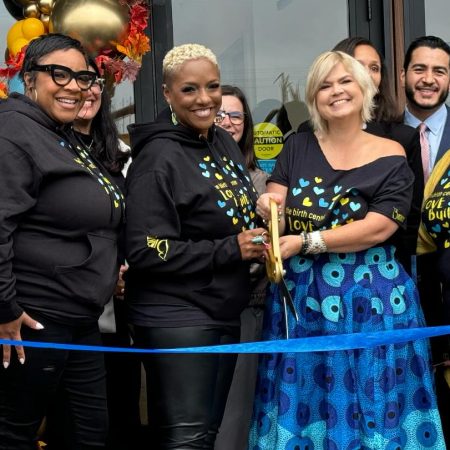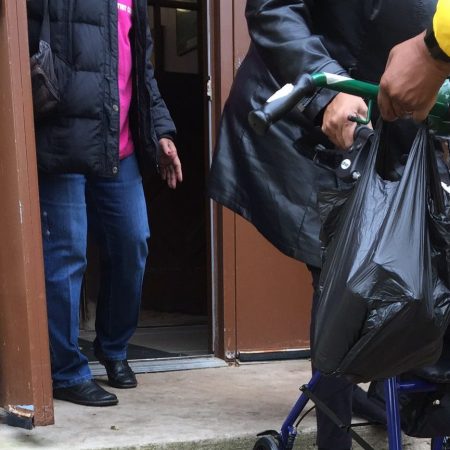Detroit Evening Report: Detroit’s first freestanding birthing center opens; Detroit Future City Equity Forum + more
Tonight on the Detroit Evening Report, we cover Detroit Future City’s upcoming Equity Forum; Detroit’s new (and only) freestanding birthing center opening its doors and more.
Subscribe to the Detroit Evening Report on Apple Podcasts, Spotify, NPR.org or wherever you get your podcasts.
DFC Equity Forum Wednesday
Detroit Future City is hosting its fifth annual Equity Forum with Detroit Public Television on Wednesday. A panel of local and national leaders will discuss advancing economic equity, with a focus on strategies for Detroiters to access high-quality jobs. Detroit Future City’s CEO Anika Goss will give opening remarks and Jelani Cobb, the dean of Columbia University’s Journalism School and a New Yorker staff writer, will also share some thoughts. The panel will be moderated by Stephen Henderson, host of WDET’s current affairs program Created Equal. The forum will take place from 9:30 a.m.-2 p.m. at the Wayne County Community College Northwest Campus, 8200 W Outer Dr., Detroit.
Southwest Detroit celebrates Día de los Muertos
The restaurant La Jalisciense Supermercado y Taqueria in southwest Detroit is hosting the second annual Día de los Muertos festival next week, Oct. 31-Nov. 3, to honor and remember departed family members. The four-day festival will feature an interactive cemetery exhibit and theatrical performances. Community members are invited to bring pictures of loved ones for a community ofrenda or alter. The festivities will feature over 20 local vendors, cultural workshops, folklore dance performances and more.
Report shows drop in breast cancer mortality
A new American Cancer Society report finds there has been a 44% drop in breast cancer mortality rates since 1989. However, rates for American Indian and Alaska Native women have remained consistent over the past three decades. There’s also a slow increase of more women under 50 getting breast cancer. Asian American Pacific Islander women of any age are seeing a steadier growth — about 2.5-2.7% per year — of diagnoses.
Breast cancer is the second leading cause of death among U.S. women after skin cancer. This year, an estimated 310,000 new cases will be diagnosed in women and 2,700 men, with over 42,000 women and 530 men dying from the disease. Black women have a 38% higher cancer mortality rate than white women, although they have a 5% lower incidence of getting the disease.
Birth Detroit holds grand opening
The nonprofit Birth Detroit recently hosted a ribbon-cutting for its new Birth Center at 8575 Heritage Place in Detroit. Birth Detroit is a Black women-led network of midwives who support pregnant women by reducing the cost of birth and providing safer alternative birthing options to women of color. The center — Detroit’s first freestanding birthing center — also provides culturally relevant maternal care. The nonprofit crowdfunded $4 million for the project, which broke ground last year. Detroit City Council President Mary Sheffield also awarded Birth Detroit the Spirit of Detroit award.
Do you have a community story we should tell? Let us know in an email at detroiteveningreport@wdet.org.
Trusted, accurate, up-to-date.
WDET strives to make our journalism accessible to everyone. As a public media institution, we maintain our journalistic integrity through independent support from readers like you. If you value WDET as your source of news, music and conversation, please make a gift today.
The post Detroit Evening Report: Detroit’s first freestanding birthing center opens; Detroit Future City Equity Forum + more appeared first on WDET 101.9 FM.

